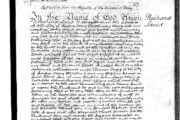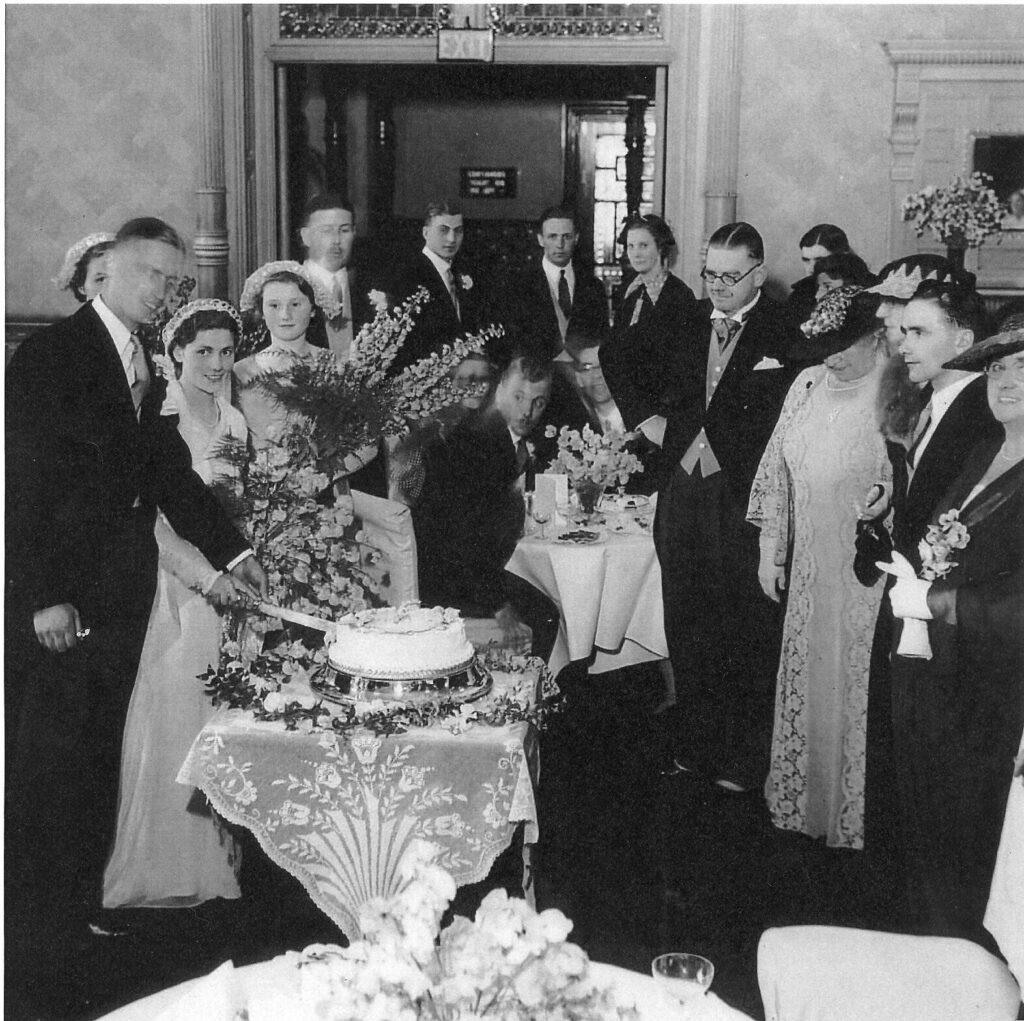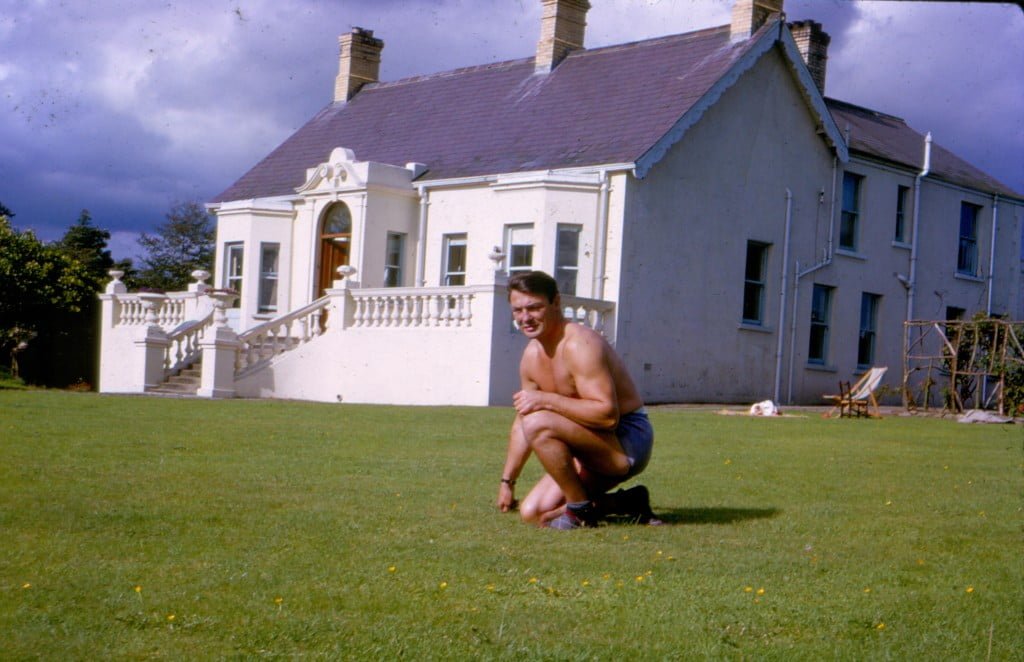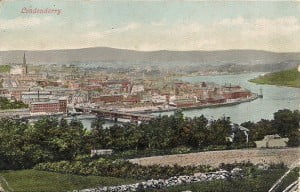SS ORIENT 1879 The ORIENT was built in 1879 by John Elder & Co, Glasgow and the first ship built for the Orient Steam Navigation Co.Ltd, she was also the first specifically designed for the Australian mail service and built to Admiralty armed merchant cruiser specification. She was a 5,386 gross ton ship, length 460ft (140,21m) x beam 46.3ft (14,12m) x depth 35ft (10,67m) and when registered in September 1879 was the largest ship in the World apart from the 20-year-old, 19,000-ton Great Eastern. She had two funnels, four masts (rigged for sail), iron construction, single screw and a speed of 15 knots. There was passenger accommodation for 120-1st, 130-2nd, 300 steerage class, or 1,500 troops. Launched on 5th June 1879, she sailed from London on her maiden voyage to Melbourne and Sydney via the Cape on 3rd Nov.1879 and returned via Suez. (until 1883 contract voyages went out via the Cape, home via Suez).
She was the biggest ship on the Australian route, and set a London/Adelaide record of 37 days 22 hours. On her second outward voyage in 1880 she set a Plymouth/Cape Town record of 17 days 21 hours which stood for 10 years. In 1881 she had refrigeration fitted and in 1882 was chartered as transport for the Egyptian campaign, then later in 1884 she had electric lights installed. In 1898 the Orient was modernised at Wallsend Slipway and Engineering Co, Wallsend-on-Tyne, rebuilt to 5,453 tons, and fitted with 7,000ihp triple expansion engines to give her a speed of 16½ knots. Her four masts and two funnels had been replaced by two pole masts and a single taller funnel, and a forecastle and turtleback poop had been added. In Nov.1899 she became a troopship for the Boer War and on 17th July 1903 resumed commercial services to Sydney. Her last sailing on this service commenced on 23rd July 1909 and in 1910 she was sold to Italian ship breakers and renamed ORIC for her final voyage to Italy where she was scrapped.




ORIENT (1879)
Base data at 13 September 1879. Last amended March 2002.
* indicates entries changed during Group service.
Type Passenger liner
P&O Group service None
P&O Group status Owned by subsidiary company before acquisition
Registered owners Orient Steam Navigation Company Ltd
Managers Anderson, Anderson & Company and
Frederick Green & Company
Operators Orient Line
Builders John Elder & Co
Yard Govan Country UK Yard number 224
Registry Glasgow, UK
Official number 82254
Signal letters SQWH
Classification society Lloyd’s Register
Gross tonnage* 5,386 grt Net tonnage 3,440 nrt Deadweight
Length 140.16m (460.0ft) o/a, 135.74m (445.5ft) b/p
Breadth 14.11m (46.3ft) Depth 10.66m (35.0ft) Draught
Construction (if not steel) Iron
Engines* Compound steam engines
Engine builders John Elder & Co
Works Glasgow
Country UK
Power* 5,400 ihp Propulsion 1 screw Speed 15 knots
Passenger capacity 120 1st class, 130 2nd class and 300 steerage, or 1,500 troops
Cargo capacity
Crew
Employment UK/Australia mail services
Career
05.06.1878: Launched. The first ship ordered for Orient Steam, she was also the first specifically designed for the Australian mails and built to Admiralty armed merchant cruiser specification.
05.09.1879: Registered.
13.09.1879: Completed. The largest ship in the World apart from the 20-year-old,
19,000-ton Great Eastern.
01.11.1879: Maiden voyage London/Melbourne/Sydney via the Cape (until 1883 contract voyages went out via the Cape, home via Suez). She was the biggest ship on the Australian route, and set a London/Adelaide record of 37 days 22 hours.
1880: On second outward voyage set a Plymouth/Cape Town record of 17
days 21 hours which stood for 10 years.
1881: Refrigeration fitted.
23.07.1882: Chartered as transport for the Egyptian campaign.
20.09.1882: Charter ended.
1884: Carried Orient’s first consignment of South Australian mails.
1884: Electric light fitted, the first on any Australian run ship.
1895: Fire in bunkers at Melbourne put out by flooding until she grounded.
11.12.1897: Sent for major refit at Wallsend Slipway and Engineering Co, Wallsend-on-Tyne.
06.04.1898: Refit completed. Now fitted with 7,000 ihp triple-expansion engines
with speed increased to 16½ knots. Tonnage now 5,453 grt. Her four masts and two funnels had been replaced by two pole masts and a single taller funnel, and a forecastle and turtleback poop had been added.
06.1898: Returned to service.
13.10.1899: Taken up for Boer War trooping as Transport no. 24.
10.11.1902: Finished trooping duties. She had carried 9,037 troops out and 9,859
home, also returned a contingent to New Zealand and repatriated
Boer prisoners-of-war from St. Helena.
1903: Returned to mail service.
11.01.1910: Sold to Luigi Pittaluga fu Francesca to be broken up at Genoa. She was renamed Oric for the voyage under tow to the breakers’ yard.
Florence Margaret Vallance’s Diary, S.S. Orient, 1884
“I think the theatrical scheme has fallen through… Yesterday afternoon a few of us assembled in the Saloon to talk it over & arrange matters. Everyone was rather lazy, especially Mr Christie, whose feelings so overcame him, on finding out he had a good deal to learn, that he suddenly collapsed under the table…”
Florence Margaret Vallance was born in 1867. At the age of seventeen, she and other family members began their much discussed “great move” from Canterbury, England, to join a brother in Tasmania. The family intended to establish a drapery business in Launceston and Florence hoped to earn her own living by teaching music. They sailed from Gravesend on the “Orient” on Thursday 18 September and arrived in Melbourne on 31 October 1884. This was the 13th out of 67 round voyages to Australia, that this popular Orient Line steamer made between 1879 and 1909. In keeping with most Royal Mail steamers of the period, the route taken was through the Mediterranean Sea and Suez Canal.
Florence’s shipboard diary, written in pencil to avoid ink stains and blots in rough weather, provides a lively and entertaining description of the voyage and particularly the social life on board the “Orient”. As a second-class saloon passenger, her journey was one of relative comfort compared to poorer working-class emigrants, who would only have been able to afford a steerage passage “below deck”.
“A Committee for the Promotion of Amusement has been formed. The Members were voted in & of course there is a little jealousy with those who had not sufficient votes. The outsiders are thinking of forming an opposition Committee so there is sure to be some squabbling before long.”
Two pages are featured here. The first, dated 22 June 1884, expresses Florences’s excitement at the prospect of the coming adventure. The second, dated 13 October 1884, describes shipboard entertainments including a “Tug of War” between the first and second cabin passengers.
MS 12371. Florence Margaret Vallance Diary, January 1884 – December 1888.
La Trobe Australian Manuscripts Collection, State Library of Victoria














Members Comments